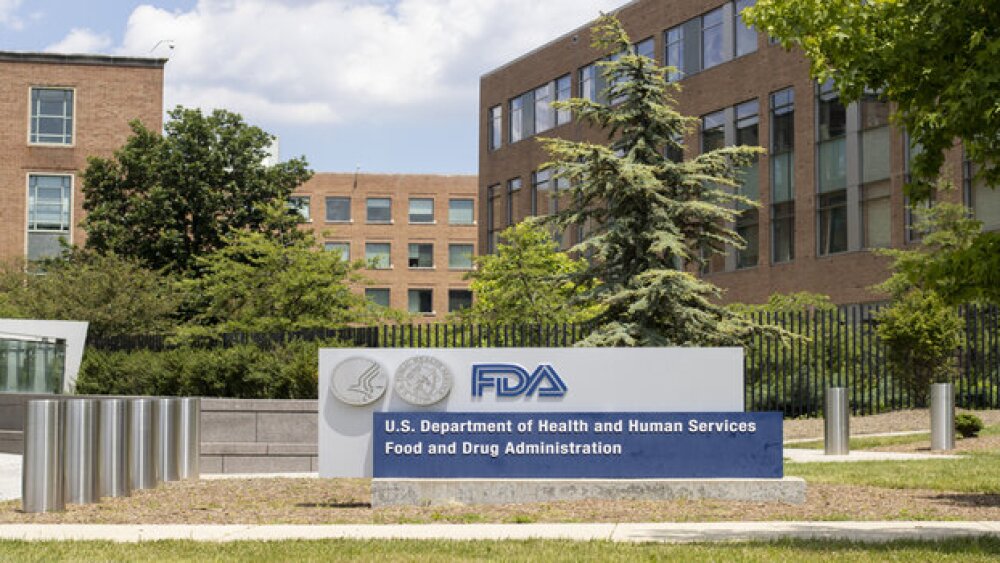The FDA’s target decision date is June 27, 2024, the companies announced Friday. Sanofi and Regeneron are looking to expand blockbuster Dupixent into chronic obstructive pulmonary disease.
Pictured: FDA signage at its Maryland campus/iStock, hapabapa
The FDA has granted Priority Review to Sanofi and Regeneron’s supplemental Biologics License Application seeking to expand its blockbuster antibody therapeutic Dupixent (dupilumab) into chronic obstructive pulmonary disease, the companies announced Friday.
Priority Review shortens the FDA’s review process to six months from its typical 10 months under standard review. Sanofi and Regeneron are now looking at a target action date of June 27, 2024 for Dupixent’s push into chronic obstructive pulmonary disease (COPD). Regulatory filings are also being reviewed in the European Union and in China, according to the announcement.
If approved, COPD would become Dupixent’s sixth indication. The therapy is currently approved for atopic dermatitis, asthma, eosinophilic esophagitis, prurigo nodularis and chronic rhinosinusitis with nasal polyps.
Sanofi and Regeneron are proposing to use Dupixent as an add-on maintenance treatment for adult patients with uncontrolled COPD who are receiving maximum standard-of-care inhaled therapy as well as show evidence of type 2 inflammation.
The partners backed their application with data from two Phase III clinical trials—BOREAS and NOTUS—which together have demonstrated significant drops in moderate or severe acute exacerbations versus placebo.
In May 2023, Sanofi and Regeneron published data from BOREAS showing that adding Dupixent to maximal standard-of-care inhaled triple therapy cut moderate or severe acute COPD exacerbations by 30% over 52 weeks and improved lung function by 160 mL after 12 weeks. Patients who received Dupixent also showed better health-related quality of life and lower respiratory symptom severity.
In November 2023, the partners released results from NOTUS, touting a 34% drop in moderate or severe acute COPD exacerbations in the Dupixent arm over 52 weeks of follow-up. Lung function also improved by 139 mL at 12 weeks, whereas placebo counterparts only saw a 57-mL increase.
In terms of safety, BOREAS and NOTUS did not find any new safety signals of concern. The most common side effects associated with Dupixent were back pain, COVID-19, diarrhea, headache and nasopharyngitis.
Dupixent is a monoclonal antibody that targets both the IL-4 and IL-13 cytokines, blocking their signaling cascades and reducing type 2 inflammation, which is often a key driver in several immune diseases.
Regeneron and Sanofi are jointly developing and commercializing Dupixent under a broad November 2007 partnership that also covers other therapeutic antibodies. Under the agreement, the partners are also advancing itepekimab, which is an anti-IL-33 antibody being developed for a different subpopulation of COPD patients. The partners anticipate readouts and submissions for itepekimab in 2025.
Tristan Manalac is an independent science writer based in Metro Manila, Philippines. Reach out to him on LinkedIn or email him at tristan@tristanmanalac.com or tristan.manalac@biospace.com.






